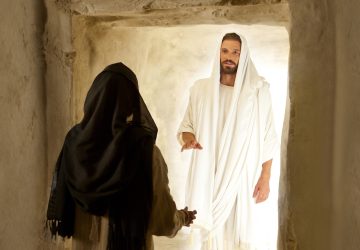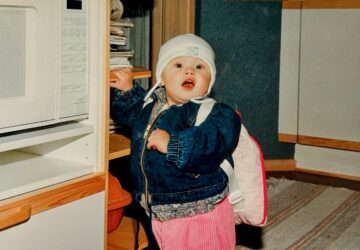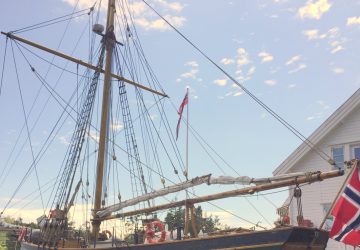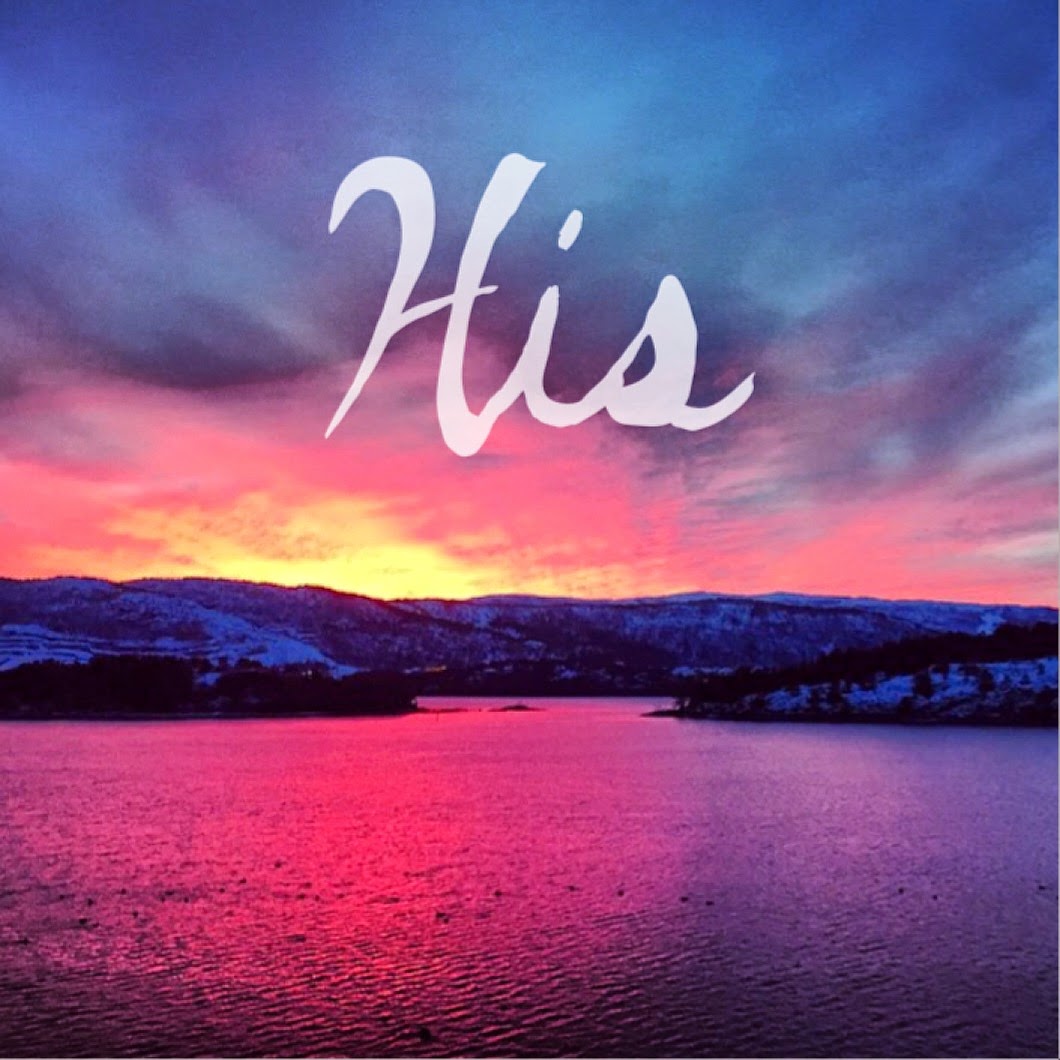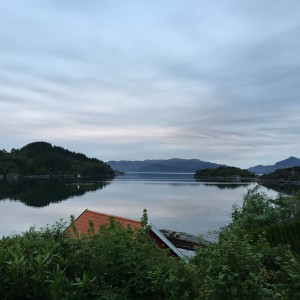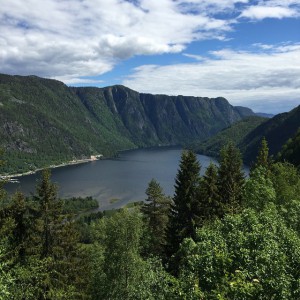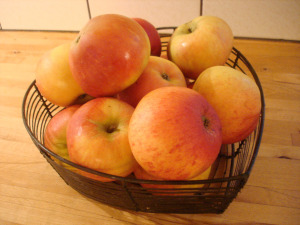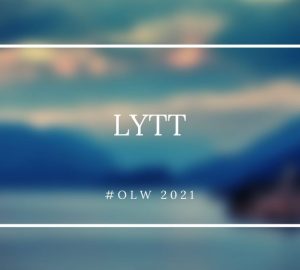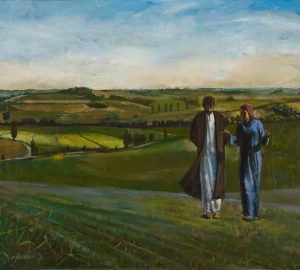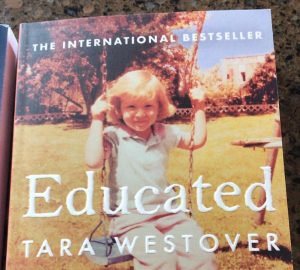Each January I choose a word. One little word. It wasn’t my idea, but it has stuck. Over the years I have had a variety of ‘words’. Peace. Selfless. Today. Breathe… You get the idea. My one little word is supposed to help me focus on an area of my life that needs improving, or to remind me of what I want my focus to be. This year my one little word is – yes, you guessed it – ‘His’.
It is meant to be a reminder that quite literally everything under the sun is His.
The earth He created. Every living creature. Even me. All His.
Knowing it is one thing. Creating a life that reflects that knowledge in every aspect is a very different story.
My one little word may be ‘new’ to 2015, but my concern for -and love of, – God’s creations, go back as far as I can remember.
I was born in Nigeria, Africa, but raised in Europe (England, Switzerland and Norway) – and I believe my lack of geographical roots has instilled in me a deep sense of belonging – not to any particular country – but to the planet earth itself. (Borders and nationalities are, after all, man-made inventions.)
Still, the south-west coast of Norway is the place I now call home. Land of fjords, and mountains, Aurora Borealis and the midnight sun. Of clean water, fresh air and pristine national parks. We joke that when God had created the west coast of Norway, he looked down on it said: ‘This is so beautiful! I’m going to wash it every day!’ (We get a lot of rain, which is also why it is so green!) But Norway is also one of the countries in the world whose economy is not only lubricated by oil and gas, but almost completely dependent on it. Still, Norwegians in general like to think of themselves as environmentally conscious, myself included. (And I even work in the oil industry..!)
One of our previous prime ministers, Gro Harlem Brundtland, coined the phrase ‘sustainable development’ in 1987, in the United Nations ‘ “Report of the World Commission on Environment and Development: Our Common Future” . The definition of which is “… development that meets the needs of the present without compromising the ability of future generations to meet their own needs.”
On the IISD (International Institute for Sustainable Development) web site we read:
All definitions of sustainable development require that we see the world as a system—a system that connects space; and a system that connects time.
When you think of the world as a system over space, you grow to understand that air pollution from North America affects air quality in Asia, and that pesticides sprayed in Argentina could harm fish stocks off the coast of Australia.
And when you think of the world as a system over time, you start to realize that the decisions our grandparents made about how to farm the land continue to affect agricultural practice today; and the economic policies we endorse today will have an impact on urban poverty when our children are adults.
It is easy to feel overwhelmed and anxious at the enormity and complexity of the global environmental issues we are facing. It would be a perfectly natural reaction to follow the example of the proverbial ostrich, and bury our heads in the sand. And many do. However, as members of the church of Jesus Christ of Latter Day Saints, we have a particular responsibility to ‘face the facts’, and act. Quite simply because we know better.
The final verse in the Old Testament is usually used in the context of family history. Malachi 4:6 ‘And he shall turn the heart of the fathers to the children, and the heart of the children to their fathers, lest I come and smite the earth with a curse.’ I like to think it also applies to our earth stewardship. Are our hearts turned to the future generations, and are we doing all we can to leave them with a planet that is still viable? I strongly believe that our final accountability will include how we took care of the planet we were entrusted and commanded ‘to dress (it), and to keep (it).’ (Moses 3:15)
With our knowledge of the creation and the plan of salvation, we should be the most passionate and vigilant people on earth in our efforts to preserve and conserve. But not just because we KNOW, but because we have a deep desire to show our infinite gratitude to Him who “made all things; and without him was not any thing made that was made” (John 1:3). All His.
The sustainable development approach is three pronged: Environmental, Economical, and Societal. Please forgive me for reiterating the obvious:
- Green house gas emission create global warming and other environmental issues. Most of today’s emissions are from the wealthy countries of the world. The problems caused, like flooding, droughts and other natural disasters, affect poor countries most. In addition, the stress on nature is threatening the biological diversity. Green house gases are emitted, among other ways, by the combustion of oil, coal and gas. These resources are not renewable. Once they are used up, they are gone forever. To halt the climate changes and create sustainable development, the world needs to invest in renewable resources; like forests, water and wind.
- In the world today there is an increasing gap between the poor and the wealthy. Most of the world’s population lives in poor countries, while it is the population of the wealthy countries that uses most of the resources. If the entire world’s population were to consume as much as Norway and the US, for example, we would need 2,7 and 4,4 earths, respectively! To lessen the gap between the poor and the rich, we need a more equal distribution of the world’s resources. That means we need to create an economic system that offers poor countries opportunities for growth. For this growth to be sustainable, the environment must be taken in to consideration along the way. That could mean that richer countries should help pay for poor countries to develop environmentally sound industries, instead of focusing on non-renewable resources. Normal citizens in rich countries can contribute to a more equal distribution by being more aware of (and reducing) their own consumption. If we, for example, ate a little less meat than we do today, the corn used as feed for animals (that are to become meat), could be used to feed people instead.
- The relatively high population growth in poor countries creates an added stress on the local natural resources, which again makes it harder for poor people to work their way out of poverty. Many rural families therefore choose to move to urban areas, where they more often than not, end up living in slum areas. Access to education and health care is an important component in making it possible for the poor to escape poverty over time. Studies show that women who have knowledge of, and access to, family planning, have fewer children than those who don’t. This again gives the families fewer mouths to feed, and less pressure and stress on the local natural resources. (source: UN)
It is my opinion that our personal and individual approach to creating ‘sustainable development’ should also be three pronged in the same areas, through the causes we support (financially and otherwise) and the priorities we make.
We cannot truly care for the environment, without taking into consideration the welfare of our fellow earth inhabitants. Our brothers and sisters. I quote Elder Holland:
The writer of Proverbs would make the matter piercingly clear: “He that oppresseth the poor reproacheth his Maker,” and “whoso stoppeth his ears at the cry of the poor … shall [also] cry himself, but shall not be heard.”5
In our day, the restored Church of Jesus Christ had not yet seen its first anniversary when the Lord commanded the members to “look to the poor and … needy, and administer to their relief that they shall not suffer.”6 Note the imperative tone of that passage—“they shall not suffer.” That is language God uses when He means business.
Given the monumental challenge of addressing inequity in the world, what can one man or woman do? The Master Himself offered an answer. When, prior to His betrayal and Crucifixion, Mary anointed Jesus’s head with an expensive burial ointment, Judas Iscariot protested this extravagance and “murmured against her.”7
Jesus said:
“Why trouble ye her? she hath wrought a good work. …
“She hath done what she could.”8
“She hath done what she could”! What a succinct formula!
As I have searched for ways to align my personal life with the knowledge and accountability I have mentioned above, I have found many helpful resources. One of my favorites is the book ‘Zero Waste Home’, by the French author Bea Johnson. She has expanded the familiar 3 R’s (Reduce, Reuse, Recycle) – to the 5 R’s: Refuse, Reduce, Reuse, Recycle and Rot. (Always in that order.)
Minimizing my carbon footprint means taking a close look at all the little decisions I make every day, and it starts at home. If I want to reduce the amount of waste that our home produces, I need to start by reducing what comes in to the house in the first place. To begin with, I thought the whole concept was just about reducing the amount of landfill trash produced, but as I started living the 5 R’s, I realized more and more that it included not wasting the resources I had access to as well. ‘Waste not, want not.’ Bea Johnson has made all the rookie mistakes of enthusiastic idealism, and worked out perfectly feasible guidelines for a simpler, environmentally friendlier and even healthier lifestyle.
It’s all the little things that add up. Riding my bike to work, buying in bulk, reducing the amount of meat we eat, but increasing the amount of fruit and vegetables. Buying less clothes and shoes, and buying quality when I do. Doing less laundry. Taking shorter showers. Composting biological waste in the garden. Avoiding plastic bags, and disposables. Giving gifts of time or experiences, instead of stuff. Paying a generous fast offering and contributing to the church Humanitarian Fund. Using natural ingredients to clean my home, instead of harsh chemicals. Sharing what I know, in any way I can.
When attending a CPR refresher class at work recently, I was reminded that it is always better to do something, anything, than nothing at all. The same applies to ‘saving’ our environment. Just because I can’t single handed solve all the environmental issues our planet is facing, does not excuse me from trying to do my part. A quote often attributed to Mother Teresa says: ‘God doesn’t require us to succeed; he only requires that you try.’
A few days ago one of my brothers shared a video clip of the stand up comedian Louis CK in an imagined conversation between God and man. I won’t link to it here, as it was laced with profanity, but here is an attempt at transcribing a little part of it:
‘I think we come from another planet, because we don’t like it here. I mean, if we belong here, why aren’t we comfortable here, I mean, at all? We need nice smooth surfaces, right angles, and we need it to be cool – not too hot, just a liiiittttle…. just perfect! I mean, why wouldn’t we when it’s hot just like – yeah – no problem! – Why wouldn’t we be like that, if we belonged here? And it’s weird, because people who aren’t, eh, whatever you call them, I mean there are environmentalists, and then there are people who are like – whatever – who just hate environmentalists, and they get angry with the environmentalists because they think they are slowing down the economy and creating restrictions and stuff – and a lot of these people are Christian. A lot of these people are very devout Christians. And that’s just a confusing thing to me, because if you believe that God gave you the earth, that God created the earth for you – why would you not have to look after it? Why would you not think that when He came back He would not go:
‘What on earth did you do? I gave this to you! Are you crazy? The polar bears are brown! What did you do to the polar bears? Who did this? Did you do this? Did you spill this? Come over here. Did you spill this? What is that?’
‘It’s oil. It’s just some oil… I didn’t mean to spill it…’
‘Well, why did you take it out of the ground?’
‘Cause I wanted to go faster…. It’s not, I’m not fast enough…and I was cold…’
‘What do you mean you were cold? I gave you everything you needed!’
‘Well, because, jobs … and …eh..I wanted a job…’
‘What’s a job? Explain to me – what’s a job?’
‘Eh – you work at a place, and people call when their game isn’t working, and you help them figure it out…’
‘What do you do that for?’
‘For money.’
‘What do you need money for?’
‘Food?’
‘Just eat the stuff on the floor! I left stuff all over the floor! Corn and wheat and stuff! Grind it and make bread and stuff! What are you doing?’
(whining) ‘But it doesn’t have bacon around it, and…. I like when it has like bacon on it and…’
In spite of the recent discovery of a planet resembling ours, Kepler 452b, there really is no ‘Plan(et) B’!
The Norwegian word for environment is Miljø. It is pronounced like the French word ‘milieu’ – which means ‘middle’. I like to think of the environment as just that: my surroundings, that I am in the middle of, and have been assigned stewardship over. Because it is all still His.
